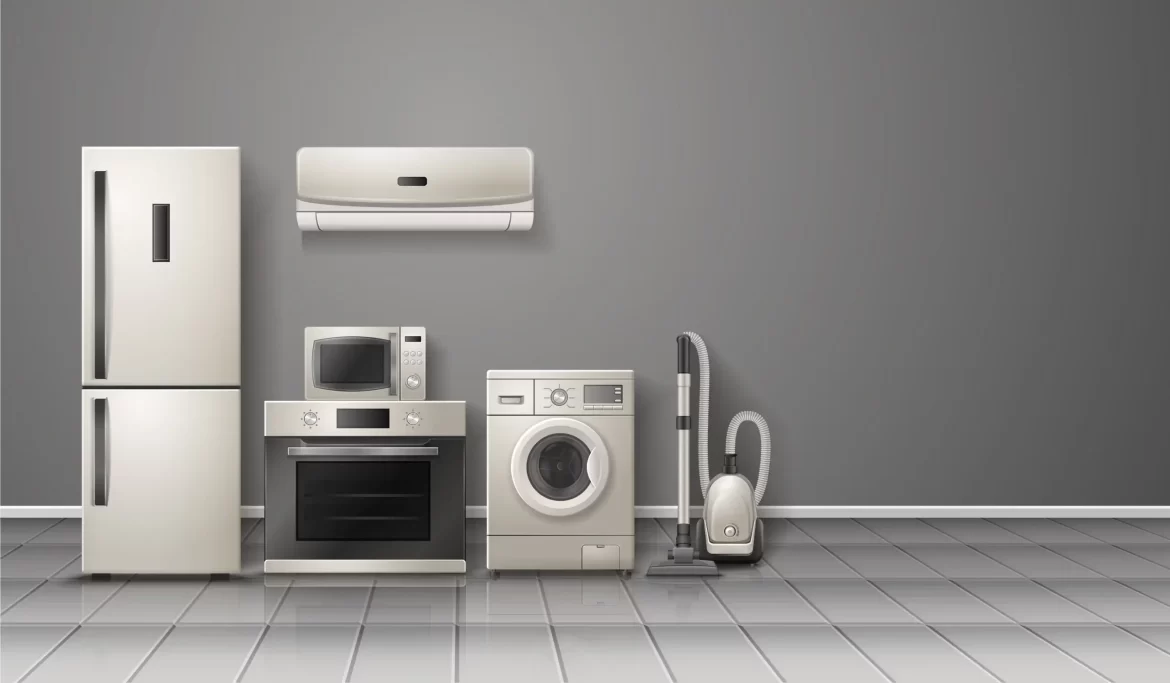With home appliance sales slowing down due to the pandemic, consumers are refocusing on appliances that offer a premium experience or more functionality. These include unique design aesthetics, smart technology and attachments that fulfil a specific purpose.
Urbanisation and shrinking living spaces drive the demand for compact, space-saving appliances. Additionally, health and hygiene-focused features such as touchless controls are becoming popular.
Smarter
There’s a growing trend for appliances with smart technology, which makes them easier to use and more customizable. For example, you can preheat your oven from your phone while in the car or see what’s in your fridge from your tablet.
Connectivity also allows appliance manufacturers to run diagnostics remotely before sending a technician. This can reduce service call costs for both homeowners and repair shops. For people with disabilities, these features help increase accessibility and make it easier to cook and clean. Other smart features include voice assistant integration, gesture control, and eco-friendly features that minimize energy consumption. This includes maximizing solar power utilization, reducing greenhouse gas emissions, and conserving precious resources.
More Connected
Smart appliances are increasingly connecting to the internet, allowing for seamless integration with other home automation devices and remote control. Homeowners also enjoy convenience with voice or gesture commands.
Smart kitchen appliances like coffee makers that brew automatically at a programmed time; fridges that keep track of expiration dates and create shopping lists; and microwaves that can preheat and cook food are becoming more common in homes.
Smart household monitors can sense issues and alert owners to potential problems, such as power surges or a frozen water line. They can also help reduce energy consumption by turning off lights remotely. In addition, many smart devices can receive new features through software updates several years after purchase.
Eco-Friendly
Energy-efficient appliances minimize waste and emissions, reducing your carbon footprint and environmental impact. Some even have smart technology built into them, making it easy to monitor and control energy use remotely.
Additionally, eco-friendly appliances are often made with low-VOC and non-toxic materials, reducing off-gassing that may harm your health. Many of these appliances are also manufactured to higher quality standards, ensuring they’ll last longer and require less maintenance over time.
Hybrid appliances combine state-of-the-art technology with advanced sensor systems and automation capabilities to optimize energy consumption and reduce environmental impact without sacrificing performance. These features are especially attractive to homeowners seeking a more sustainable lifestyle.
Versatile
With technology influencing appliance trends, many homeowners are looking to upgrade and incorporate new home appliances into their existing homes. Smart appliances offer a unique opportunity to do just that, allowing owners to control their devices remotely. For example, a smart oven can be preheat and set for a specific time using just a mobile device.
Culinary enthusiasts are looking for multi-functional appliances, reducing kitchen clutter and space. For instance, manufacturers are designing appliances that combine a microwave oven, air fryer and food warmer all into one.
Consumers continue to prefer purchasing large household appliances in brick and mortar stores where they can rely on product specialists to explain the features and help them weigh their options. This is also where they can see the products in action and understand how they work before making a purchase.
Compact
As living spaces become smaller, consumers are seeking versatile appliances that maximize space and function. From refrigerator-oven combos to washer-dryer hybrids, these multifunctional devices are becoming more common in homes.
Many smart home appliances are now synced with Bluetooth and WiFi, allowing homeowners to manage their products remotely. This tech-based trend has also led to the introduction of voice assistants, which enable hands-free operation and offer a personalized experience.
Despite inflation dampening consumer purchasing power and a shift towards repair and remodel focused projects, new technology in appliances continues to draw residential customers seeking upgrades for their homes. This includes appliances that support hygienic and wellness lifestyles.
Health-Focused
As sustainability becomes more prevalent, consumers are drawn towards appliances that support a healthier lifestyle. From air purification to slow cookers or crock-pots, these appliances help create an environment that promotes healthy eating, drinking, and exercise habits.
As living spaces get smaller, consumers want versatile appliances that can multitask. Examples include refrigerator-oven combos and washer-dryer hybrids that can save space by eliminating the need for separate appliances.
Many people live with health conditions that demand accommodations in the home. These may include vision, hearing, energy or immunity challenges that require a certain level of convenience. Home appliance manufacturers, kitchen designers and occupational therapists are stepping up to meet this need.




